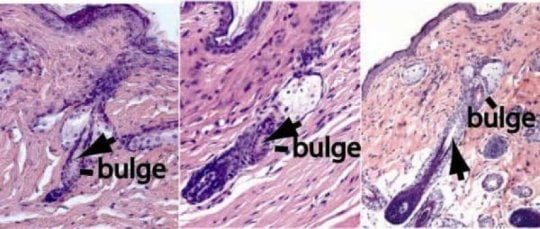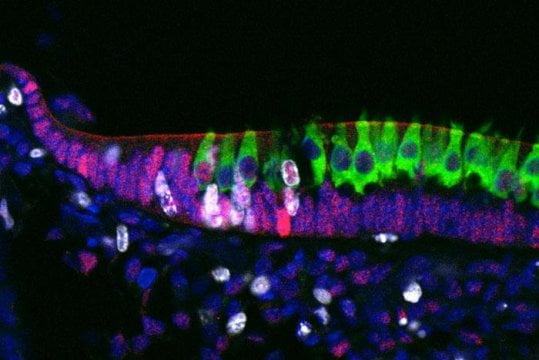
Wellmune induced improvements in intestinal barrier function both in patients with Crohn’s Disease (CD) and in controls, found the research team from the University of Örebro, Sweden.
The ingredient, manufactured by Dublin-headquartered Kerry Group, is a prebiotic dietary fibre containing beta-glucan derived from bakers’ yeast. Wellmune was acquired from Biothera Inc. in late 2015.
Wellmune reduced permeability through the follicle-associated epithelium (FAE), (which overlies the Peyer’s Patches), and through the villi (small finger-like projections in the gut lining, which absorb nutrients). The supplement improved permeability both through spaces between cells in the epithelium (paracellular hyperpermeability), and through cells themselves (transcellular hyperpermeability).
The study also provided preliminary evidence that Wellmune may be absorbed by both the Peyer’s Patches and the villi.
Although further studies are needed to confirm the mechanism of action (MOA), the study findings suggest that Wellmune improves intestinal barrier function by blocking the activation / degranulation of mast cells.
“We provide evidence that yeast-derived beta-glucan has a beneficial effect on ileal barrier function by inhibiting stress effects on the epithelium. Beta-glucan was able to attenuate paracellular and transcellular hyperpermeability caused by mast cell-degranulation,” wrote lead author Dr. Åsa Keita.
Previous research has identified that chronic and acute stress can result in degranulation of mast cells, which weakens the intestinal barrier. Increased gut permeability (‘leaky gut’) is widely considered to play a role in numerous chronic diseases. Mast cells are also activated in allergic reactions.
“Our results provide important and novel knowledge, and highlight the possible application of yeast-derived beta-glucan in health disorders and diseases characterised by intestinal barrier dysfunction, such as CD,” Keita added.
Wider applications?
The efficacy of the supplement in improving gut permeability in individuals without inflammatory bowel disease (IBD) may have wider applications for gut health.
Previous studies have suggested that psychological stress can increase intestinal permeability. Therefore, Wellmune might be helpful in offsetting the harmful effect of stress on the gut, which was simulated in the study by the use of the stress-inducing chemical C48/80.
“The body’s intestinal barrier function allows for the absorption of things like nutrients and water, while simultaneously maintaining an effective defense against toxins and pathogens that can be harmful to our health,” explained Donald Cox, Ph.D., Kerry’s Director of R&D for Wellmune. “While these are preliminary results and more research is needed, Wellmune may protect barrier function during stress.”
“This new study has given us more insight about the identity of some of the cells that interact with Wellmune in the human gut and a greater understanding of the first steps in the mechanism of action for Wellmune,” Cox added.
Source: Inflammatory Bowel Diseases
Volume 24, issue 1, Pages 166–178, doi: 10.1093/ibd/izx002
“A beta-Glucan-Based Dietary Fiber Reduces Mast Cell-Induced Hyperpermeability in Ileum From Patients With Crohn’s Disease and Control Subjects”
Authors: John-Peter Ganda Mall, Maite Casado-Bedmar, Martin E. Winberg, Robert J. Brummer, Ida Schoultz and Åsa V. Keita
[“Source-nutraingredients”]



















